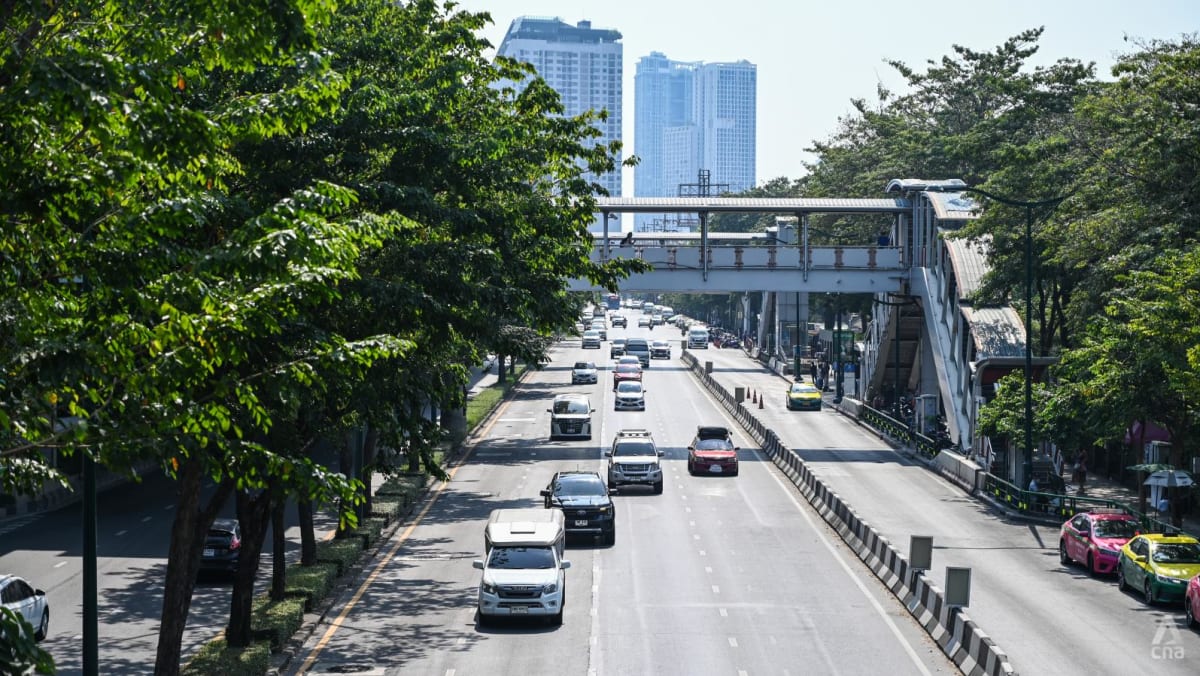Asia
Thailand inches closer to potential F1 race bid, but would it spark more smiles than frowns?

A GLOBAL SHOWCASE: Thailand’s Ambitious Push into Sports Tourism
Thailand is making bold moves to position itself as a major player in the global sports tourism industry. The country is currently eyeing the prestigious Formula 1 (F1) Grand Prix as a cornerstone of its broader tourism and economic growth strategy. This initiative is part of the government’s "Ignite Thailand" campaign, which aims to establish the nation as a global hub for tourism, infrastructure, events, and culture. By hosting high-profile events like the F1 race, Thailand hopes to showcase its unique cultural heritage and modern infrastructure to a global audience, attracting both tourists and international investors.
The Rise of Sports Tourism in Thailand
Thailand is no stranger to leveraging sports as a tool for tourism and economic development. This year, the Tourism Authority of Thailand (TAT) has launched the "Amazing Thailand Grand Tourism and Sports Year," a campaign that highlights the country’s ability to host world-class sporting events. Key events on the calendar include the Wai Kru Muay Thai Ceremony in March, the FIVB Volleyball Women’s World Championships, the Bangkok Marathon, and the SEA Games. Additionally, the annual MotoGP motorcycle race in Buriram, located in eastern Thailand, has already proven to be a success, generating $140 million in economic circulation in 2024 and creating nearly 7,000 job opportunities. These events are part of a strategic effort to diversify Thailand’s tourism offerings and appeal to a broader, more affluent demographic.
The Prestige of Hosting F1
While Thailand has already made significant strides in sports tourism, hosting an F1 Grand Prix would take its efforts to the next level. According to Matthew Marsh, a Singapore-based motorsport and marketing specialist at EDJ Motorsport, F1 carries a level of prestige that other events simply cannot match. “Hosting a Grand Prix allows a city or country to showcase itself on a world stage, alongside others in an exclusive club,” Marsh explained. He likened the exposure to that of the Olympics or FIFA World Cup but noted that F1 offers the added advantage of being an annual event, providing ongoing benefits rather than a one-off boost.
Economic and Cultural Benefits of F1 in Thailand
The potential economic and cultural benefits of hosting an F1 race in Thailand are significant. Nithee Seeprae, TAT’s deputy governor for marketing communications, highlighted that sports tourism attracts visitors with higher spending patterns and creates multiplier effects by drawing both tourists and international investment. “The F1 race aligns with the nation’s broader tourism campaigns, to enhance year-round travel and highlight Thailand’s cultural and geographical diversity,” he said. An event of this magnitude would not only boost Thailand’s economy but also amplify its appeal to affluent global audiences, fostering economic benefits and international recognition.
A Prime Opportunity for F1 Expansion
The timing for Thailand’s F1 bid couldn’t be better. The sport has experienced a surge in popularity in recent years, thanks in part to Liberty Media’s takeover in 2017 and the success of the Netflix series “Drive to Survive,” which has introduced F1 to a new generation of fans. Marsh noted that F1 has evolved from a niche motorsport series into a global entertainment and lifestyle platform, making Southeast Asia an increasingly viable market for expansion. Today, one-third of F1 fans have started following the sport in the past four years, with women making up 41% of the fanbase and 40% of viewers aged between 16 and 34. In 2024 alone, F1 saw a 27% increase in social media following from Asia, contributing to a regional fan base of 386 million—just over half of the sport’s global total.
A New Chapter for F1 and Thailand
A race in Thailand would offer something entirely new and exciting for F1 fans worldwide. Marsh emphasized that the combination of shifting demographics and the allure of a new circuit in a vibrant city like Bangkok could elevate the sport’s global profile. Unlike traditional circuits like Sepang in Malaysia, a Thai Grand Prix would be a destination event, attracting both existing fans and new audiences from across Southeast Asia. For Thailand, hosting F1 would be a strategic move to enhance its reputation as a dynamic and culturally rich destination. By leveraging the global appeal of F1, Thailand is poised to take its tourism and economic ambitions to new heights, solidifying its place as a key player in the global sports tourism landscape.
-

 Money3 days ago
Money3 days agoConsumer Financial Protection Bureau Adds Error Message To Home Page
-

 Australia21 hours ago
Australia21 hours agoTropical Cyclone Zelia intensifies to category 2 storm
-

 Asia21 hours ago
Asia21 hours agoWhat you need to know about 2024 YR4, the asteroid that could hit Earth in about eight years’ time
-

 Money2 days ago
Money2 days agoWinning Content Strategies For Wealth Managers
-

 Entertainment13 hours ago
Entertainment13 hours agoPrince Harry and Meghan Markle’s Best Moments and Photos From the 2025 Invictus Games
-

 Politics22 hours ago
Politics22 hours agoDozens of religious groups sue to stop Trump admin from arresting migrants in places of worship
-

 Australia7 hours ago
Australia7 hours agoTropical Cyclone Zelia intensifies to category five system off Pilbara coast
-

 Entertainment3 days ago
Entertainment3 days agoEvery Celebrity Who Attended the 2025 Super Bowl: A Guide to the A-Listers at the Big Game











